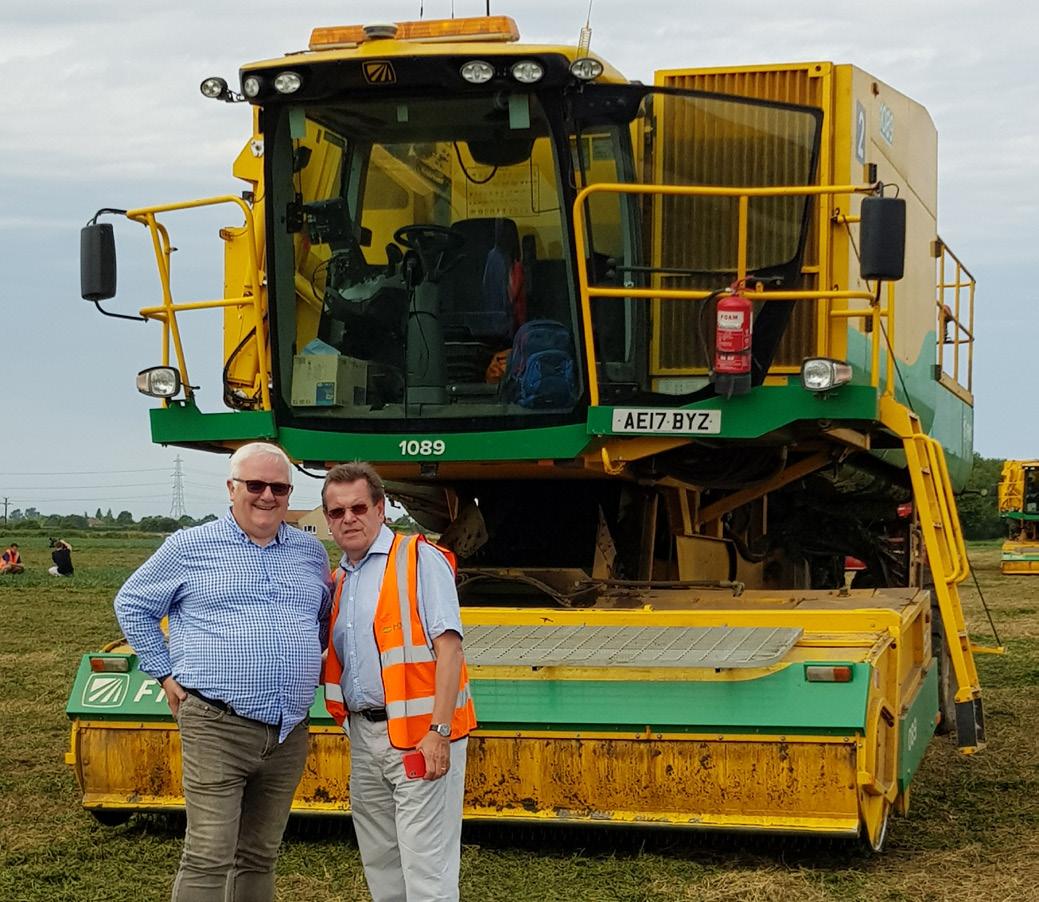
3 minute read
Richard Harrow – one year as CEO
Many milestone moments have happened during lock down, but there’s one we couldn’t let pass without a mention. It’s been a whole year since Richard Harrow took the position of CEO at the BFFF. We caught up with him to find out the highlights of his first year at the helm.
First impressions
My first impression on becoming CEO was the amazing culture evident in the office team. I had known them from being a member and other involvement with the Federation, but only by working with them do you realise just how committed they are.
My second was how dedicated our membership is to frozen food, which combined with some market-leading innovation, means we have a truly vibrant category.
Proudest moments
From a personal point of view it was probably the first time I presented the product awards. I thought it was important I do it myself, but it was incredibly nerve-wracking. The fact I got through it without tripping over too many words felt like an achievement!
Events like these are also a great source of professional pride. Seeing the BFFF team working together to deliver an event really is something to behold. It’s a small team who usually work quite separately, but they all come together and pitch in. People always congratulate me on the success of these events, but the truth is I have very little involvement. I stand on stage but the team does all the leg work.
Big changes
When I first took up the CEO position I was surprised we hadn’t embraced technology more. While I’m the first to admit I don’t always understand a lot of it, I do know where it can take us in terms of teams working together and engaging with members more effectively.
In an effort to increase our use of technology I appointed a new marketing manager who boosted the technological knowledge I lack. With this dynamic team a lot of work is now being done on the website and we have made more use of video conferencing software. The onset of coronavirus has of course accelerated this process, but it has forced us all to use certain technologies which might otherwise have taken a long time to adapt to.
Room for improvement
There have of course also been periods of disappointment, in particular when I hear we haven’t met members’ expectations. This is hard to hear when you put every effort into providing a valuable service. But all feedback is an opportunity to learn and we do take member concerns seriously and use them to identify where there is room for improvement.
What’s next?
In the immediate future we need to think about how we support members – many of whom are struggling to survive - as we come out of lock down. In the longer term, our trading relationship with Europe will be a focus, because an orderly agreement with the EU is essential to our sector.
There is also going to be a renewed focus on packaging reduction, but we may see a different view of plastic after coronavirus, as people come to see the role it plays in preserving food. That said, we still need to prevent plastic waste from damaging the environment.
This will be a focus of one of our Special Interest Groups (SIGs), which were launched at this year’s business conference.
The Packaging SIG concept was driven by consumer demand to remove plastic, and this group will look at whether ideas to do this are fit for the frozen sector. It is critical that we seek to reduce packaging not only for the image of the category but also for the bottom line, as it is clear that government will seek to pass higher costs onto industry for recycling of packaging.
The Sustainability SIG will help the Federation develop policy around this topic, the group will look at the issue of food waste, the narrative of which has evolved from economic to environmental. The frozen sector has been accused of heavy energy use and we need to explain how efficiently we use that energy.
As the voice of an industry, we will also continue to campaign to WRAP to highlight how frozen food does so much to reduce food waste.
My overarching aim for the coming year is to better understand the different needs members have, particularly in out-of-home and wholesale. It’s a challenge to find the common ground among members and I don’t feel I’ve met this challenge yet. What I want to do is reinforce that our members are at the heart of everything we do, and our aim is to make the Federation as relevant as possible to them.









